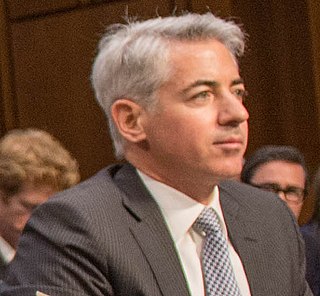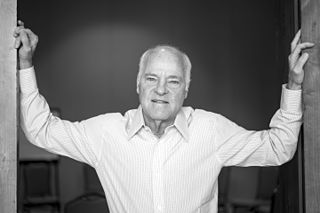A Quote by James Surowiecki
Self-dealing, essentially, occurs when managers run companies to line their own pockets instead of those of the companies' owners. It's been a perennial problem in American capitalism and became a real dilemma when America moved toward a model in which corporations would be run by professional managers who had only small ownership stakes.
Related Quotes
Many financial and industrial companies have been bailed out with the public's money, but very few of those who had run those companies have been punished for their failures. Yes, the top managers of those companies have lost their jobs - but with a fat pension and mostly with a handsome severance payment.
Our capitalistic scheme in the latter years of the 20th century seems to have lost its way. We've had a "pathalogical change" from traditional owners capitalism where most of the rewards have gone to those who make the investments and assume the risks to a new and deeply flawed system of managers capitalism where the managers of our corporations our investment system, and our mutual funds are simply take too large a share of the returns generated by our corporations and mutual funds leaving the last line investors - pension beneficiaries and mutual fund owners at the bottom of the food chain.
As a result of overdiversification, their (active managers) returns get watered down. Diversification covers up ignorance. Active managers haven't done enough research into any of their companies. If managers have 200 positions, do you think they know what's going on at any one of those companies at this moment?
The idea that a relatively fixed group of privileged people might shape the economy and government for their own benefit goes against the American grain. Nevertheless, the owners and top-level managers in large income-producing properties are far and away the dominant power figures in the United States. Their corporations, banks, and agribusinesses come together as a corporate community that dominates the federal government in Washington. Their real estate, construction, and land development companies form growth coalitions that dominate most local governments.
Governments don't want a population capable of critical thinking, they want obedient workers, people just smart enough to run the machines and just dumb enough to passively accept their situation.You have no choice. You have owners. They own you. They own everything. They own all the important land. They own, and control the corporations. They've long since bought, and paid for the Senate, the Congress, the state houses, the city halls, they got the judges in their back pockets and they own all the big media companies, so they control just about all of the news and information you get to hear.
As an American I must say I haven't been very encouraged by the way in which the people who run the government in the United States have been listening to those contrary voices. And so long as the power to run the world lies in the hands of people who are quite happy to see it get warmer, or fuel be used more, then would those people who oppose it are crying in the wilderness - that's the real problem.
When we first started our internet company, 'China Pages', in 1995, and we were just making home pages for a lot of Chinese companies. We went to the big owners, the big companies, and they didn't want to do it. We go to state-owned companies, and they didn't want to do it. Only the small and medium companies really want to do it.
European and American companies companies do create jobs for some people but what they're mainly going to do is make an already wealthy elite wealthier, and increase its greed and strong desire to hang on to power. So immediately and in the long run, these companies - harm the democratic process a great deal.
Today's consumers are eager to become loyal fans of companies that respect purposeful capitalism. They are not opposed to companies making a profit; indeed, they may even be investors in these companies - but at the core, they want more empathic, enlightened corporations that seek a balance between profit and purpose.
Some blame the drug companies. I don't. They are corporations. Their managers are ordered by law to make money for the corporation. They push a certain patent policy not because of ideals,but because it is the policy that makes them the most money. And it only makes them the most money because of a certain corruption within our political system-a corruption the drug companies are certainly not responsible for. The corruption is our own politicians' failure of integrity.
































